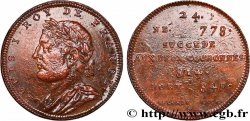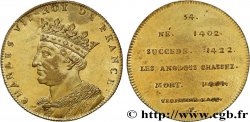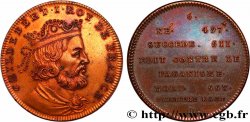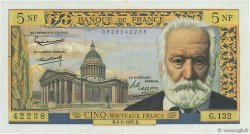fjt_747273 - SÉRIE MÉTALLIQUE DES ROIS DE FRANCE Règne de HENRI IV - 63 - Émission de Louis XVIII - frappe d’origine n.d.
35.00 €约 284.55 CNY
数量
加入购物车

种类 Règne de HENRI IV - 63 - Émission de Louis XVIII - frappe d’origine
日期: n.d.
材质 red copper
直径 32 mm
模子方针 12 h.
重量 11,79 g.
侧面 cannelée
稀少度 R1
家谱
Exemplaire provenant de la Collection MARINECHE
正面
正面的文字 HENRI IV ROY DE FRAN. ET DE NAVAR..
正面的说明书 Buste lauré et cuirassé à droite.
背面
背面的文字 63 - NÉ 1553 - SUCCEDE 1589 - CONQUETE DE LA BRESSE ET DU BUGEY 1600 - MORT 1610 - TROISIEME RACE BRANCHE DE BOURBON / P..
背面的说明书 en huit lignes.
评论
Henri IV, né Henri de Bourbon (13 décembre 1553 à Pau - 14 mai 1610 à Paris) fut roi de Navarre (Henri III de Navarre, 1572-1610) puis roi de France (1589-1610), premier souverain français de la branche dite de Bourbon de la dynastie capétienne.
Il était le fils de Jeanne III, de son nom patronymique Jeanne d'Albret, reine de Navarre et d'Antoine de Bourbon, chef de la maison de Bourbon, descendant du roi Louis IX et premier prince de sang. En vertu de la « loi salique » cette filiation fera d'Henri le successeur naturel du roi de France à la mort de François, duc d'Anjou (frère et héritier du roi Henri III), en 1584.
Contemporain d'un siècle ravagé par les guerres de religion, il y fut d'abord lourdement impliqué en tant que prince de sang et chef protestant avant d'accéder au trône de France (Lui-même dut changer plusieurs fois de religion avant son accession au trône). Pour être accepté comme roi, il se convertit au catholicisme, et signa l'Édit de Nantes, traité de paix tolérant dans certaines limites le culte protestant, qui mit fin pendant deux décennies aux guerres de religion. Alors qu'il préparait une guerre contre l'Espagne, il fut assassiné le 14 mai 1610 par un fanatique charentais, François Ravaillac, rue de la Ferronnerie à Paris.
Pour la suite de sa biographie, voir http://fr.wikipedia.org/wiki/Henri_IV_de_France.
Henry IV, born Henry of Bourbon (December 13, 1553 in Pau - May 14, 1610 in Paris) was King of Navarre (Henry III of Navarre, 1572-1610) then King of France (1589-1610), first French sovereign of the so-called Bourbon branch of the Capetian dynasty.
He was the son of Jeanne III, patronymic name Jeanne d'Albret, Queen of Navarre and Antoine de Bourbon, head of the House of Bourbon, descendant of King Louis IX and first prince of the blood. Under the \\\"Salic law\\\" this lineage will make Henry the natural successor to the King of France upon the death of Francis, Duke of Anjou (brother and heir of King Henry III), in 1584.
Contemporary of a century ravaged by religious wars, he was first heavily involved as a prince of the blood and Protestant leader before acceding to the throne of France (He himself had to change religion several times before his accession to the throne). To be accepted as king, he converted to Catholicism and signed the Edict of Nantes, a peace treaty tolerating Protestant worship within certain limits, which put an end to the Wars of Religion for two decades.. While preparing for war against Spain, he was assassinated on May 14, 1610 by a fanatic from Charente, François Ravaillac, on rue de la Ferronnerie in Paris..
For the rest of his biography, see http://fr. Wikipedia. org/wiki/Henry_IV_of_France
Il était le fils de Jeanne III, de son nom patronymique Jeanne d'Albret, reine de Navarre et d'Antoine de Bourbon, chef de la maison de Bourbon, descendant du roi Louis IX et premier prince de sang. En vertu de la « loi salique » cette filiation fera d'Henri le successeur naturel du roi de France à la mort de François, duc d'Anjou (frère et héritier du roi Henri III), en 1584.
Contemporain d'un siècle ravagé par les guerres de religion, il y fut d'abord lourdement impliqué en tant que prince de sang et chef protestant avant d'accéder au trône de France (Lui-même dut changer plusieurs fois de religion avant son accession au trône). Pour être accepté comme roi, il se convertit au catholicisme, et signa l'Édit de Nantes, traité de paix tolérant dans certaines limites le culte protestant, qui mit fin pendant deux décennies aux guerres de religion. Alors qu'il préparait une guerre contre l'Espagne, il fut assassiné le 14 mai 1610 par un fanatique charentais, François Ravaillac, rue de la Ferronnerie à Paris.
Pour la suite de sa biographie, voir http://fr.wikipedia.org/wiki/Henri_IV_de_France.
Henry IV, born Henry of Bourbon (December 13, 1553 in Pau - May 14, 1610 in Paris) was King of Navarre (Henry III of Navarre, 1572-1610) then King of France (1589-1610), first French sovereign of the so-called Bourbon branch of the Capetian dynasty.
He was the son of Jeanne III, patronymic name Jeanne d'Albret, Queen of Navarre and Antoine de Bourbon, head of the House of Bourbon, descendant of King Louis IX and first prince of the blood. Under the \\\"Salic law\\\" this lineage will make Henry the natural successor to the King of France upon the death of Francis, Duke of Anjou (brother and heir of King Henry III), in 1584.
Contemporary of a century ravaged by religious wars, he was first heavily involved as a prince of the blood and Protestant leader before acceding to the throne of France (He himself had to change religion several times before his accession to the throne). To be accepted as king, he converted to Catholicism and signed the Edict of Nantes, a peace treaty tolerating Protestant worship within certain limits, which put an end to the Wars of Religion for two decades.. While preparing for war against Spain, he was assassinated on May 14, 1610 by a fanatic from Charente, François Ravaillac, on rue de la Ferronnerie in Paris..
For the rest of his biography, see http://fr. Wikipedia. org/wiki/Henry_IV_of_France







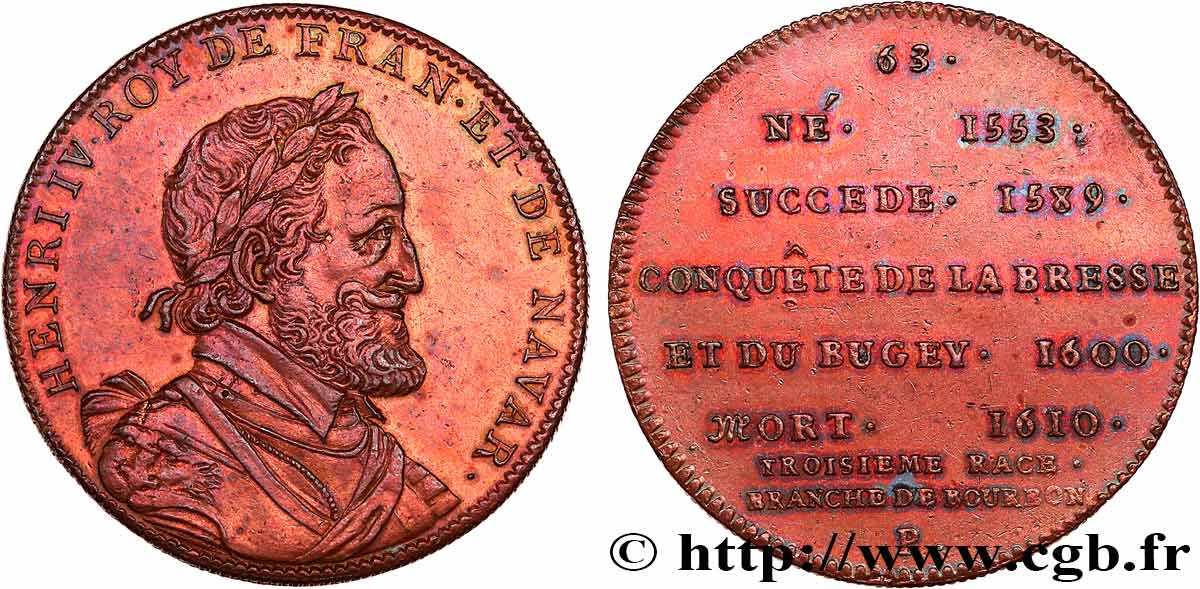
 对产品描述纠错
对产品描述纠错 打印
打印 分享我的选择
分享我的选择 提问
提问 Consign / sell
Consign / sell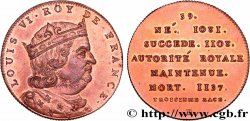
 产品介绍
产品介绍

